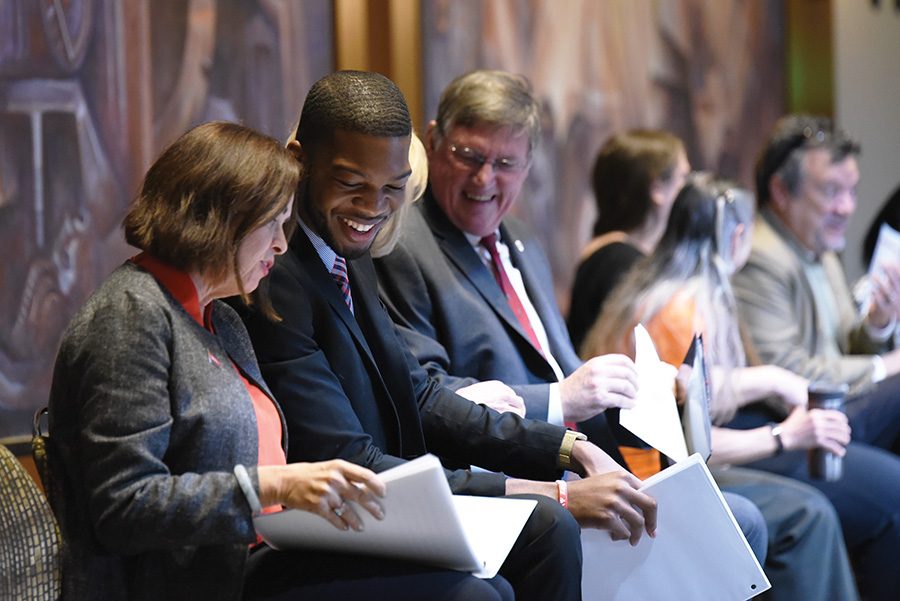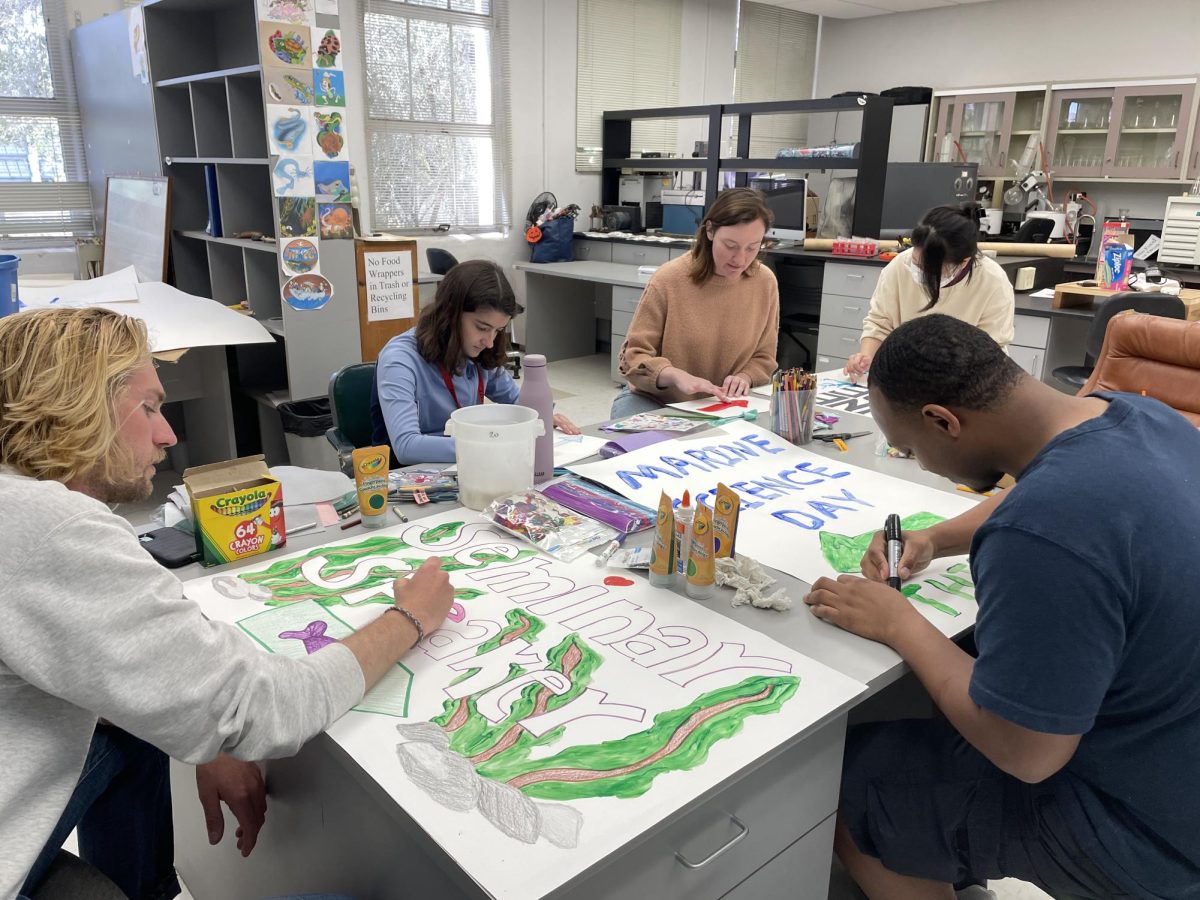When it was announced that Adela de la Torre would be the next San Diego State president, the first woman and person of color to hold the position, there were mixed reactions across campus.
Particularly vocal and supportive about the decision were Latino organizations, faculty and students, who expressed their opinions on Latino representation and stereotypes within the community at SDSU.
For Victoria Gonzalez-Rivera, an associate professor for the Chicana and Chicano Studies department, the announcement of de la Torre is a significant step forward, but there are still improvements that need to be made in regards to the way Latinos are perceived in the SDSU community.
“I think we (Latinos) are presumed incompetent often times and lots of assumptions are made about why we got a job, a promotion, etc.,” Gonzalez-Rivera said. “I’m always being called ‘Maria’ and people always assume I teach Spanish.”
Gonzalez-Rivera said these falsely-made assumptions are embedded and a part of the culture.
Norma Iglesias-Prieto, also a professor in the Chicana and Chicano Studies department, has done over 35 years of research on the U.S.-Mexican border. She also believes that stereotypes about Latinos are still a problem today that require efforts to be broken.
“You have to recognize that a stereotype is an oversimplification with a lack of contextualization of a particular group, (and) you have to work in the opposite direction (to break it),” Iglesias-Prieto said.
Iglesias-Prieto says she is happy with the announcement of de la Torre as the new president, not just because de la Torre is a Latina woman, but because of the issues that de la Torre has come out in favor of, particularly those in support of students who are allowed to remain in the country under the Obama administration’s Deferred Action for Childhood Arrivals policy.
Maricruz Carrillo, a bio-engineering graduate student and the social activities coordinator for the Association of Chicana Activists, is also excited and hopeful with the new SDSU president.
For Carrillo, the lack of Latino representation on campus is an important issue, and believes that for people not part of the Latino community, it is hard for them to understand the issues that affect the community.
“If we were to have more people from our community in positions of power, we would be able to have more conversations and be able to understand each other more,” Carrillo said.
Specifically, Carrillo looks at Associated Students, and her personal experience in the engineering department at SDSU as two areas which lack diversity and Latina representation.
“I think representation is a huge deal, and we should push for (having) people that might fit with the student body,” Carrillo said. “I believe we don’t have enough representation in both departments.”
Carrillo, Gonzalez-Rivera and Iglesias-Prieto all cite their main areas of concern within the university community to be DACA and low-income students.
Also, food insecurity, a problem that highly affects students of color, is a major area of concern which both Carrillo and Gonzalez-Rivera hope to see de la Torre tackle in her new position.
Gonzalez-Rivera is hopeful at the prospect of de la Torre centering and bringing together SDSU students.
“Supporting students who fall through the cracks – students who are hungry, students who are homeless, students who may be deported – that’s fundamental,” Gonzalez-Rivera said. “Helping those who need the most help should be the priority.”
Just like Gonzalez-Rivera and Igelsias-Prieto, Carrillo has hope in de la Torre’s abilities to lead as president, and is optimistic that de la Torre will take a stand on issues, particularly those that affect students of color.
“I’m hopeful – I know sometimes in a position of power it’s hard to stand your ground,” Carrillo said. “(But) I am hoping that she fights along with us on these issues.”







